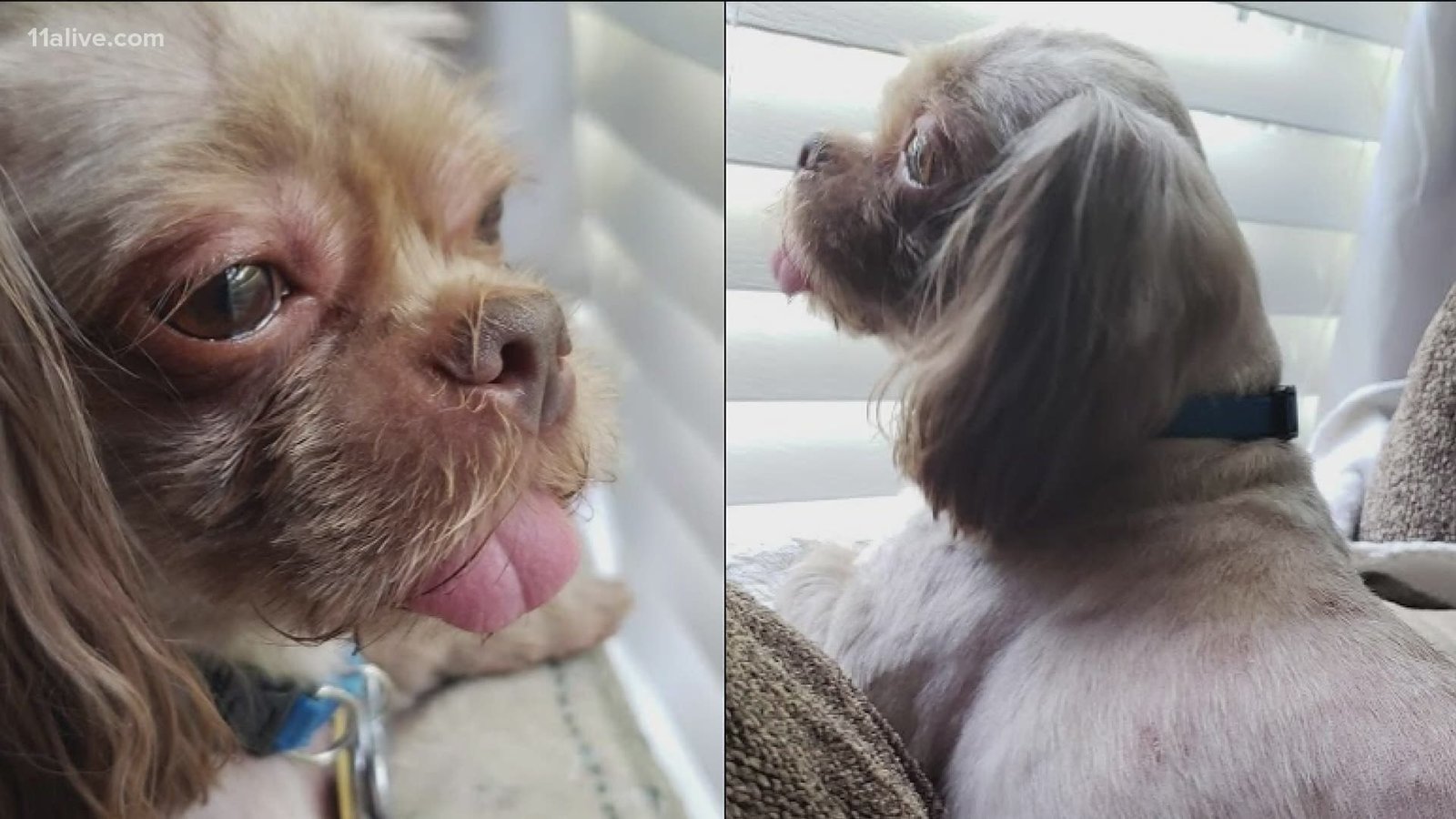My chihuahua’s behavior has been puzzling me lately. Despite being a tiny breed, she has been acting quite strangely. From sudden bursts of energy to unusual eating habits, I can’t help but wonder what could be causing these behaviors.
Chihuahuas are known for their lively and feisty nature, but when they start acting out of character, it may be a sign of an underlying issue. It is important to consider factors such as changes in routine, possible health problems, or even anxiety. With their small size and delicate structure, chihuahuas can be prone to certain health conditions that may contribute to their unusual behavior. Seeking guidance from a veterinarian and providing a calm and stable environment may help alleviate their stress and address any potential health concerns.

Why Is My Chihuahua Acting Strange?: Understanding Your Pet’s Behavior
**
Chihuahuas are known for their spirited personalities, but sometimes their behavior can leave their owners puzzled. If you find yourself asking, “Why is my Chihuahua acting strange?”, you’re not alone. In this article, we will explore some common reasons behind unusual Chihuahua behavior and provide insights to help you better understand your furry friend.
**
1. Communication Through Body Language
**
Chihuahuas, like all dogs, communicate primarily through body language. Understanding their various movements, postures, and vocalizations can help decipher their behavior. For example, when a Chihuahua is feeling anxious or scared, they may tuck their tail, flatten their ears against their head, or even tremble. On the other hand, a happy and relaxed Chihuahua will have an upright tail, relaxed ears, and a wagging tail.
It’s important to pay attention to these cues as they can provide valuable insights into your Chihuahua’s emotional state. By observing their body language, you can assess whether their strange behavior is stemming from fear, stress, aggression, or other factors. Remember to always approach your Chihuahua with patience, understanding, and empathy.
**
1.1 Tail Language: What Is Your Chihuahua Telling You?
**
A Chihuahua’s tail can serve as a barometer of their emotions. If your Chihuahua’s tail is tucked between their legs, it indicates fear or anxiety. Conversely, an upright or wagging tail signals happiness and excitement.
When deciphering tail language, it’s essential to consider the overall context. For example, if your Chihuahua has a tucked tail and flattened ears while growling or showing teeth, it could be a sign of aggression or discomfort. On the other hand, if their ears are relaxed and they have a wagging tail, it usually means they are content and friendly.
**
1.2 Ears and Eyes: The Windows to Your Chihuahua’s Soul
**
In addition to the tail, the position and movement of a Chihuahua’s ears and eyes also communicate messages. When their ears are upright and their eyes are bright and focused, it typically indicates that they are alert and interested in their surroundings. Conversely, flattened ears and a darting gaze can indicate fear or stress.
The eyes can also reveal a Chihuahua’s emotions. Dilated pupils often signal excitement or fear, while narrowed eyes can be a sign of aggression or annoyance. By paying attention to these subtle cues, you can gain a deeper understanding of your Chihuahua’s behavior and feelings.
**
2. Health Issues and Discomfort
**
Sometimes, strange behavior in Chihuahuas can be attributed to underlying health issues or physical discomfort. These tiny dogs are prone to certain conditions that may affect their behavior. For instance, dental problems, such as tooth decay or gum disease, can cause irritability, withdrawal, or changes in eating habits. Additionally, urinary tract infections, arthritis, or allergies can also contribute to behavioral changes.
If you notice persistent or severe changes in your Chihuahua’s behavior, it’s important to consult your veterinarian. They can conduct a thorough examination and run necessary tests to identify any underlying health issues. Addressing these problems early on can significantly improve your Chihuahua’s well-being and behavior.
**
2.1 Dental Health: A Root Cause of Unusual Behavior
**
Dental problems can be a major source of discomfort for Chihuahuas, leading to behavioral changes. If your Chihuahua is reluctant to eat or shows signs of pain during mealtimes, it might be due to dental issues. Bad breath, swollen gums, or excessive drooling are also indicators of potential dental problems.
Regular dental care, including brushing your Chihuahua’s teeth and providing dental toys or treats, can help prevent oral issues. Additionally, scheduling regular dental check-ups with your veterinarian is crucial for maintaining your Chihuahua’s overall health and well-being.
**
2.2 Physical Discomfort: Addressing Your Chihuahua’s Aches and Pains
**
Chihuahuas, especially those in their senior years, can experience aches, pains, and joint problems. Arthritis, for example, can cause them to exhibit strange behaviors such as reluctance to move, difficulty climbing stairs, or increased vocalizations when picked up. It’s essential to provide your Chihuahua with a comfortable and supportive bed and consider supplements or medications recommended by your veterinarian to alleviate their discomfort.
Regular exercise, within their limits, can also help keep your Chihuahua physically fit and reduce the likelihood of joint issues. Remember to consult your veterinarian for guidance on appropriate exercise routines for your furry companion.
**
3. Environmental Factors and Routine Changes
**
Chihuahuas are creatures of habit, and sudden changes in their environment or routine can lead to behavioral strangeness. Something as simple as rearranging furniture, introducing a new pet, or moving to a new home can cause stress and anxiety in your Chihuahua. Similarly, disruptions to their daily routine, such as changes in feeding times or walking schedules, can also trigger unusual behaviors.
It’s important to provide a stable and consistent environment for your Chihuahua. Introduce changes gradually and provide reassurance and positive reinforcement during any transitions. Maintaining a predictable routine, along with ample mental and physical stimulation, can go a long way in reducing your Chihuahua’s anxiety and preventing unwanted behaviors.
**
3.1 Separation Anxiety: The Pangs of Loneliness
**
One common behavioral issue observed in Chihuahuas is separation anxiety. These small dogs form strong attachments to their owners and can become distressed when left alone. Separation anxiety can manifest in various ways, such as excessive barking, destructive behavior, or soiling in the house.
To help alleviate separation anxiety, gradually accustom your Chihuahua to being alone for short periods, and provide them with toys or puzzles to keep them occupied. Additionally, seek guidance from a professional dog trainer or behaviorist to develop strategies to address this issue effectively.
**
3.2 Noise Sensitivity: Startled by the World Around
**
Chihuahuas are known for their keen sense of hearing, which can make them more susceptible to noise sensitivity. Loud sounds, such as thunderstorms, fireworks, or even household noises, can trigger fear and anxiety in your Chihuahua. They may exhibit strange behaviors like shaking, hiding, or excessive barking in response to these noises.
Implementing strategies to create a calm and secure environment, such as using white noise machines or providing a designated safe space for your Chihuahua, can help reduce their sensitivity to noises. Gradual desensitization techniques, with professional guidance if needed, can also be beneficial in managing their reactions.
Key Takeaways: Why is my Chihuahua acting strange?
- Chihuahuas may act strange due to various reasons, including illness, anxiety, fear, or discomfort.
- Changes in behavior such as excessive barking, aggression, or hiding can indicate underlying issues.
- It’s important to observe your chihuahua’s environment and routine to identify any potential triggers.
- Consulting a veterinarian is crucial to rule out any medical conditions that might be causing the strange behavior.
- Providing a calm and secure environment, regular exercise, and socialization can help alleviate chihuahua’s unusual behavior.
Frequently Asked Questions
If you’ve noticed that your chihuahua is acting strange, you may be wondering what could be causing this behavior. Here are some common questions and answers that may help you understand why your chihuahua is acting differently.
1. Why is my chihuahua suddenly aggressive?
There could be several reasons why your chihuahua is displaying aggressive behavior. It’s important to rule out any potential health issues by scheduling a visit to the vet. Additionally, changes in their environment, lack of socialization, anxiety, or even past traumatic experiences could contribute to their aggression. It’s best to consult with a professional dog trainer or behaviorist to address the issue appropriately and develop a training plan tailored to your chihuahua’s needs.
If you have recently adopted your chihuahua, it’s possible that they may be displaying fear-based aggression due to their past experiences. Patience, consistency, and positive reinforcement training methods can help them feel more secure and reduce aggressive behaviors over time.
2. Why is my chihuahua suddenly shaking?
Shaking or trembling in chihuahuas can have various causes. It may be a sign of excitement, fear, anxiety, or even pain. If your chihuahua is shaking excessively, appears weak, or is experiencing other physical symptoms, it’s crucial to consult a veterinarian to rule out any underlying health conditions. If no medical issues are found, it’s possible that your chihuahua may be experiencing anxiety, stress, or discomfort in their environment.
Providing a safe and calm environment for your chihuahua, regular exercise, mental stimulation, and ensuring they have a comfortable space to relax can help reduce shaking episodes. If the shaking persists or worsens, it’s best to consult with a veterinarian or a certified animal behaviorist for further guidance.
3. Why is my chihuahua suddenly not eating?
A sudden loss of appetite in chihuahuas can be concerning. There are several potential reasons why your chihuahua may not be eating. It could be a sign of an underlying health issue, dental problems, stress, changes in their routine or environment, or even a dislike for the type of food you’re offering. If your chihuahua goes more than 24 hours without eating, it’s crucial to consult with a veterinarian to rule out any medical conditions.
In the meantime, you can try enticing your chihuahua with different flavors or textures of food and ensuring they have a quiet and safe space to eat without distractions. Additionally, maintaining a consistent feeding schedule and offering small, frequent meals throughout the day can also help stimulate their appetite.
4. Why is my chihuahua suddenly hiding?
If your chihuahua suddenly starts hiding, it could be a sign that they are feeling scared, anxious, or stressed. They may be seeking a quiet and secure place to feel safe. It’s important to observe their behavior and try to identify any potential triggers that may be causing this behavior. Changes in the environment, loud noises, new people or animals, or even past traumatic experiences could contribute to their hiding behavior.
Creating a safe and comfortable space for your chihuahua with cozy blankets, toys, and a quiet area can help them feel more secure. Gradually exposing them to new experiences and providing positive reinforcement when they show confidence can also help reduce their hiding behaviors. If your chihuahua’s hiding persists or worsens, it’s advisable to seek guidance from a veterinarian or a professional dog behaviorist.
5. Why is my chihuahua suddenly urinating in the house?
If your chihuahua is suddenly having accidents inside the house, it could be due to various reasons. It’s important to first rule out any potential medical conditions by consulting with a veterinarian. Once medical issues have been ruled out, changes in their routine, anxiety, territorial marking, or even incomplete house training could be contributing factors.
Establishing a consistent routine for bathroom breaks, using positive reinforcement training methods, and ensuring your chihuahua has regular opportunities to eliminate outside can help address house soiling issues. If the problem persists, it’s recommended to consult with a veterinarian or a professional dog trainer to identify the underlying cause and develop an appropriate training plan.

